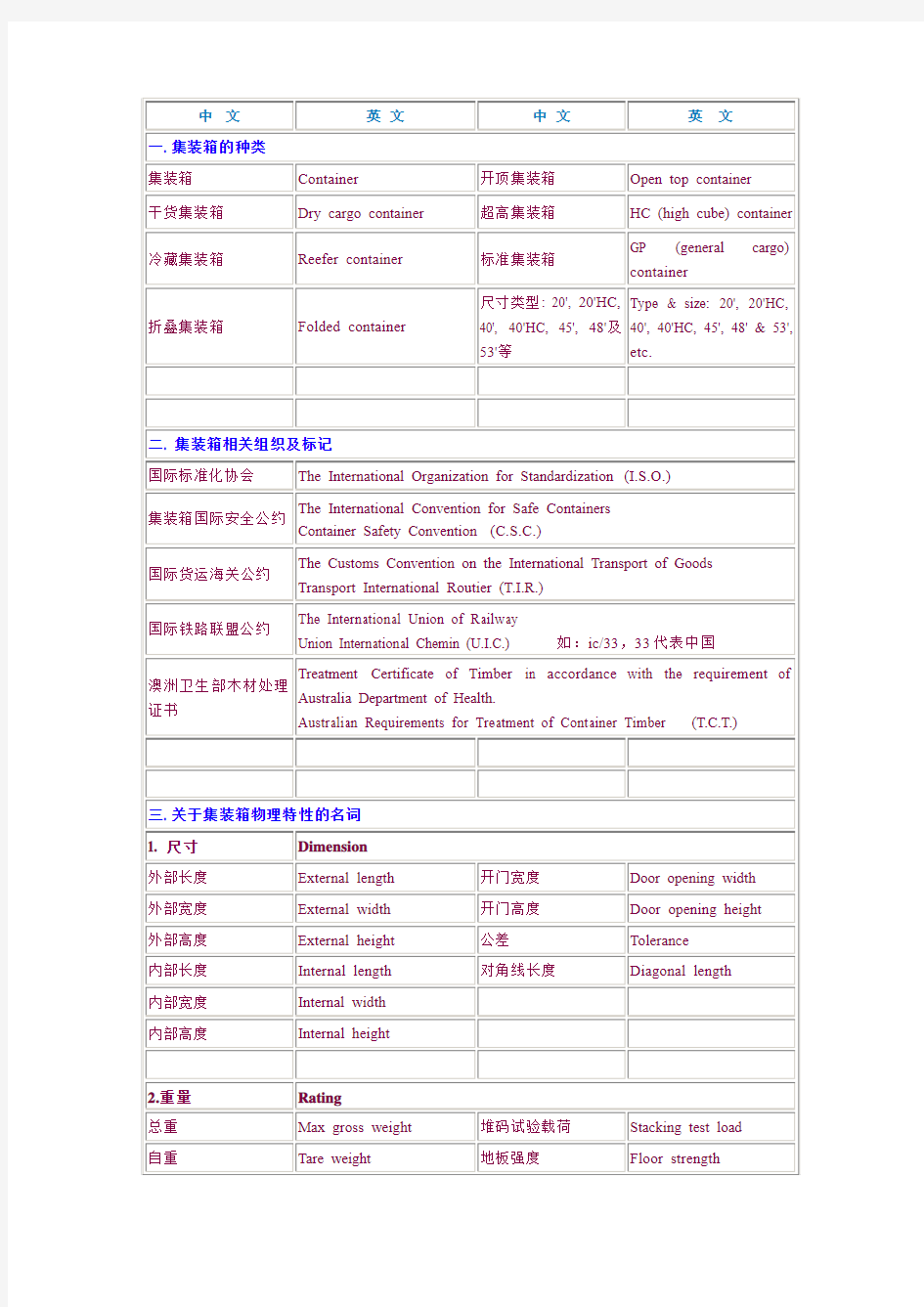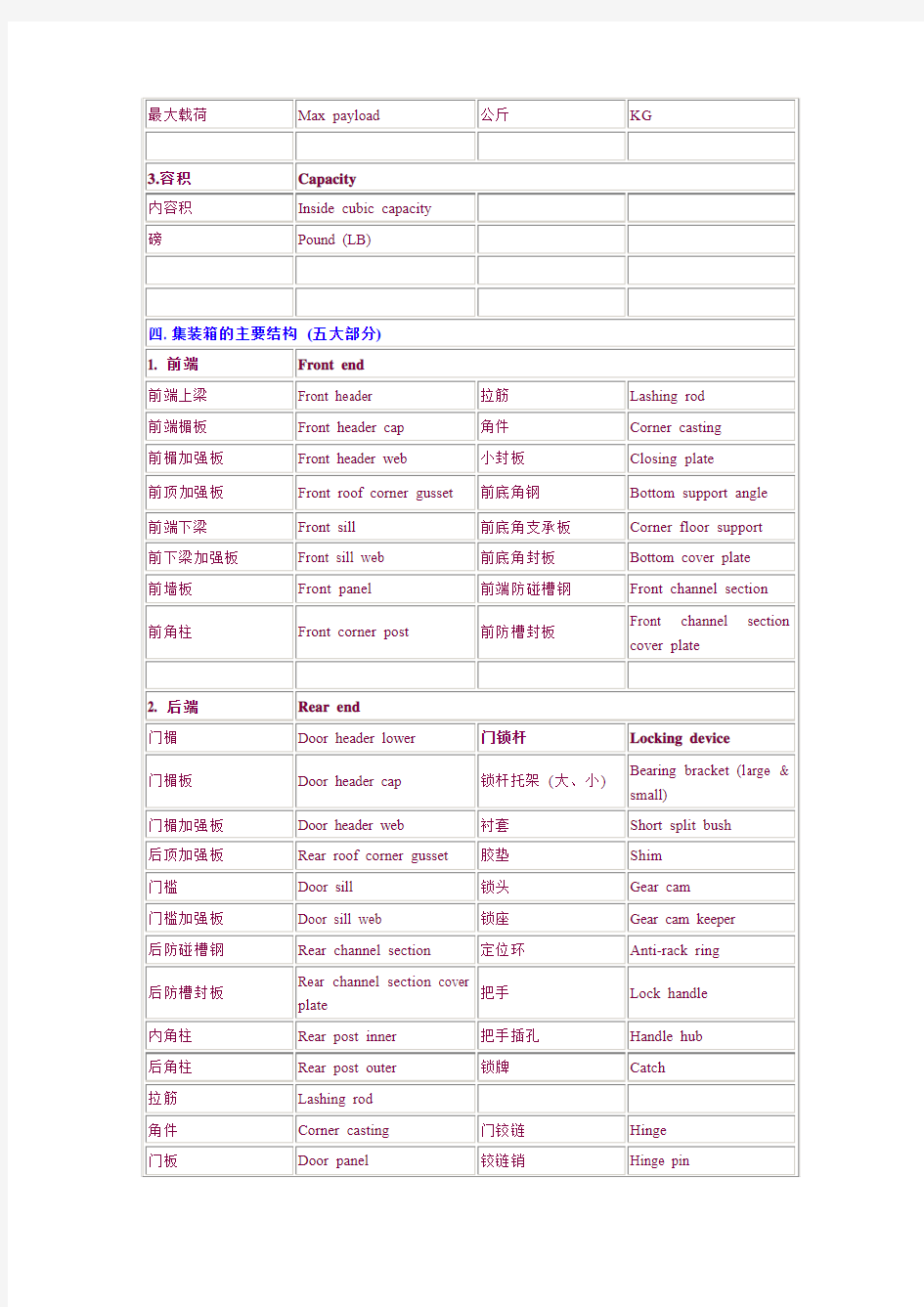

心理学专业英语复习资料 I. Translate the Following English Phrases into Chinese 1. Research Methods 研究方法 2. Psychophysics 心理物理学 3. Theories of Learning 学习理论 4. Social Cognition 社会认知 5.Personality Test 人格测试 6. Extraneous Variable 无关变量 7. Longitudinal Study 纵向研究 8. Crystallized Intelligence 晶体智力 9. Motor control 运动控制 10. Corpus Callosum 胼胝体 11. Group Thinking 群体思维 12. Social Loafing 社会懈怠 13. Social Exchange 社会交换 14. Social Approval 社会赞许 15. Diffusion of Responsibility 责任分散 16. Recency Effec 近因效应 17.Trace Decay 痕迹消退 18. Retrograde Amnesia 倒摄遗忘 19. Social Support 社会支持 20. Self-efficacy 自我效能 21. Case Study 个案研究 II. Translate the Following Chinese Word Groups into English 1. 机能主义functionalism 2. 自我实现self—actualization 3.一般规律研究法nomothetic method 4. 分层抽样stratified sampling 5. 外在信度external reliability 6. 选择性注意selective attention 7. 知觉恒常性perceptual constancy 8. 自我概念self concept 9. 液体智力fluid intelligence 10. 安全型依恋secure attachment 11. 性别图示gender schema 12. 亲社会行为pro social behavior 13. 从众实验conformity experiment 14. 头脑风暴brain storming 15. 社会助长social facilitation 16. 旁观者效应bystander effect 17. 标准差standard deviation 18. 柱状图bar chart 19. 正态分布normal distribution
模拟试卷A I. Match the special terms in Column B with the Chinese explanations in Column A (20 points , 2 points each ) A B ( )配送 A. warehousing ( )集装箱 B. picking ( )托盘 C. supply chain ( )订单处理 D. clean B/L ( )仓储 E. insurance ( )装卸 F. loading and unloading ( )拣选 G . container ( )保险 H. order processing ( )供应链 I. distribution ( )清洁提单 J. pallet II. Tell whether the following statements are True or False (10points, 1 point each ) ( ) 1. The third-party logistics is also called outsourcing or contract logistics. ( ) 2. Picking is conducted after orders are translated into picking slips in many instances. ( ) 3. Storage is a primary function of distribution center.. ( )4. Manufacturer is the executive agency that actually carries out the physical movement. ( )5. Inventory and facility costs increase as the number of facilities in a supply chain increases. ( ) 6. Warehousing costs are calculated in terms of the amount of cubic meters of space used. ( ) 7. Logistics is part of the supply chain process. ( ) 8. The supply chain network is designed to maximize each number ’s profit.. ( ) 9. Logistics can only bring tangible benefits to the users. ( )10. It ’s the end of distribution when you delivered the items to customers . III. Translate the following sentences into Chinese.(24 points, 4 points each ) 1. The exchange of business cards must be made properly. Business cards should be printed in English on one side and in your host ’s language on the other. When you present your card ,you do so with both hands. 2. Warehousing activities is an important link between the producer and the customer. Warehousing activities involve receiving, transfer, storage, picking, and shipping. Storage is a primary function of the warehouse. 3. It ’s not the end of distribution when you have delivered the dispatched items to customers. Because the items you delivered may not match the ones customers ordered, making the delivery coming to naught. 4. There are five transportation modes: rail, truck, air, water and pipeline. In addition, certain modal combination are available, including rail-truck, truck-water, truck-air, and rail-water. 5. This contract is made by and agreed between the Buyers and Sellers, whereby the Sellers agree to sell and the Buyers agree to buy the under mentioned commodity to the terms and conditions stipulated below. 班级: 姓名: 学号: 装订线
《化工专业英语》课程教学大纲 课程编号: 总学时:24 学分:1.5 基本面向:化学工程与工艺类本科生 所属单位(教研室、实验室): 一、课程目的、性质和任务: 化工专业英语是社会对人才的素质要求,也是中国化学工业的发展以及加入世界贸易组织的需要。对于化工专业学生,不仅要掌握化工专业知识和技能,而且要掌握化工专业英语,才能满足大中型化工企业的要求。化工专业英语使学生通过对化学基础知识、化工操作单元、化工设备、化工产品生产工艺、精细化工的学习,让学生掌握化学化工词汇的构词规律,掌握专业英语的特点和学习方法,掌握专业英语的翻译和写作。使学生在今后的生产实践中能够借助词典阅读专业的先进技术、信息,提高学生的阅读英文和翻译英文的能力。 二、课程目标和基本要求: 本课程对学生知识、素质和能力方面的要求如下: (1)知识要求: ·掌握化工专业英语的基本词汇和构词方法。 ·掌握化工专业英语的特点。 ·掌握化工专业英语的翻译方法:包括词类转换的译法、被动语态的译法、后置定语的译法、句子成分转换的译法、词序转换的译法。 (2)素质要求 本课程将培养学生以下几个方面的职业素质: ·培养学生运用正确的科学思维方法分析问题、解决问题的能力。 ·培养学生运用现代高新化工技术、信息的能力。 ·培养学生成为既掌握专业知识,又能熟练掌握化工专业英语的技术人才。 (3)能力与技能要求: 通过本课程的学习,学生应掌握: ·化工专业英语的基本词汇和构词方法。 ·化工专业英语的特点和翻译方法 三、本课程与其它课程的关系: 本课程的先行课程为:无机化学、有机化学、化工原理、精细化工工艺、有机合成等。 四、本课程的教学内容 前言科技英语翻译方法 第一课元素与化合物 化学平衡
心理学是什么--What Psychology Is Why people do the things they do is an age-old question. However, psychology--the science concerned with behavior, both humans and animals--is only about 125 years old. Despite its youth, it is a broad discipline, essentially spanning subject matter from biology to sociology. Biology studies the structures and functions of living organisms. Sociology examines how groups function in society. Psychologists study two critical relationships: one between brain function and behavior, and one between the environment and behavior. As scientists, psychologists follow scientific methods, using careful observation, experimentation, and analysis. But psychologists also need to be creative in the way they apply scientific findings. Psychologists are frequently innovators, evolving new approaches from established knowledge to meet changing needs of people and societies. They develop theories and test them through their research. As this research yields new information, these findings become part of the body of knowledge that practitioners call on in their work with clients and patients. Psychology is a tremendously varied field. Psychologists conduct both basic and applied research, serve as consultants to communities and organizations, diagnose and treat people, and teach future psychologists and other types of students. They test intelligence and personality. They assess behavioral and mental function and well-being, stepping in to help where appropriate. They study how human beings relate to each other and also to machines, and they work to improve these relationships. And with America undergoing large changes in its population makeup, psychologists bring important knowledge and skills to understanding diverse cultures. Many psychologists work independently. They also team up with other professionals--for example, other scientists, physicians, lawyers, school personnel, computer experts, engineers, policy makers, and managers--to contribute to every area of society. Thus we find them in laboratories, hospitals, courtrooms, schools and universities, community health centers, prisons, and corporate offices. Psychologists traditionally study both normal and abnormal functioning, and also treat patients with mental and emotional problems. Today, they are increasingly concentrating on behaviors that affect the mental and emotional health and mental processes of healthy human beings. For example, they work with business executives, performers, and athletes to combat stress and improve performance. They advise lawyers on jury selection and collaborate with educators on school reform. They show up immediately following a disaster such as a plane crash or bombing, to help victims and bystanders recover from the trauma, or shock, of the event. They team with law enforcement and public health officials to analyze the causes of such events and prevent their occurrence. Involved in all aspects of our fast-paced world, psychologists must keep up with what's happening all around us. When you're a psychologist, your education never ends. Psychology is a discipline with a bright future. Among fields requiring a college degree, it is expected to be the third fastest-growing field in America through the year 2005 and to continue to grow steadily for at least another dozen years after that. Opportunities for work in psychology are expanding in number and scope. The move toward preventing illness, rather than merely diagnosing and treating it, requires people to learn how to make healthy behavior a routine part of living. Indeed, many of the problems facing society today are problems about behavior, for example, drug addiction, poor personal relationships, violence at home and in the street, and the harm we do to our environment. Psychologists contribute solutions to problems through careful collection of data, analysis of data, and development of intervention strategies--in other words, by
Key to Exercise Unit 1 Chemical Industries 1.the Industrial Revolution https://www.doczj.com/doc/946438422.html,anic chemicals 3.the contact process 4.the Haber process 5.synthetic polymers 6.intermediates 7.artificial fertilizers 8.pesticides (crop protection chemicals) 9.synthetic fibers 10.pharmaceutical 11.research and development 12.petrochemical https://www.doczj.com/doc/946438422.html,puters(automatic control equipment) 14.capital intensive Some Chemicals Used In Our Daily Life Unit 2 Research and Development 1.R&D 2.ideas and knowledge 3.process and products 4.fundamental 5.applied 6.product development 7.existing product 8.pilot plant 9.profitbility 10.environmental impact 11.energy cost 12.technical support 13.process improvement 14.effluent treatment 15.pharmaceutical 16.sufficiently pure 17.Reaction 18.unreacted material 19.by-products 20.the product specification 21.Product storage
心理学专业英语总结——HXY 随意传阅·顺颂试安 注释:1.“*”在书上是黑体字,但感觉不重要背了也没什么卵用 2.“”背景色项表示答案恰好有三项,可能出选择 3. 人名已加黑,可能连线或选择 4. 每章节的末尾有方便记忆的单词表(只包括这篇总结中出现的关键单词) 5. 方便理解记忆,已在各项下方注明中文释义 6.“,”大部分都是作为点之间的分割,类似于逗号,前后不连成句子 Chapter 1——Perspectives in psychology 心理学纵览 Section 1: Approaches to psychology 心理学入门 ●What is psychology? 心理学是什么 Definitions: The scientific study of behaviour and mental processes. 定义:对行为和心理过程的科学研究 Psychology come from: ①philosophy, ②biology ③physics. 心理学来源于:哲学、生物学和医学 When: 1879 as a separate scientific discipline. 形成于:1879年,作为独立学科 History (develop): structuralism, functionalism, psychoanalysis, behaviourism, cognitive psychology, humanistic approach, biological approach. 历史发展:结构主义,机能主义,精神分析,行为主义,认知,人本主义,生理。 ●The psychoanalytic approach to psychology 精神分析理论 Origins & history: Sigmund Freud, unconscious mental causes, treat as the causes of mental disorders, built up an theory. 历史来源:弗洛伊德提出潜意识心理动机,把它视为心理疾病的原因,并建立理论。 Assumptions: unconscious processes, psychic determinism, hydraulic drives, psychodynamic conflict, stages of development. 假设:潜意识过程,精神决定论,驱力(攻击、性),心理动力冲突,发展阶段 Methods of investigation: case study (method), free association (tech), dream analysis (tech). 研究方法:个案研究方法,自由联想技术,梦的解析技术 *Areas of explanation: personality development, moral/gender development, aggression, abnormality, memory. 可解释领域:人格发展,道德/性别发展,攻击性,异常,记忆 *Weaknesses: unrefutable, theoretically unscientific. 缺点:不可被其他事件驳斥,因此理论不具科学性 ●The behaviourist approach to psychology 行为主义理论 Origins & history: John Watson, empiricism, learning. 历史来源:华生,经验主义,学习 Assumptions: behaviour is learned from the environment, only observable behaviour should be studied. 假设:行为来源于环境,研究可观察的行为 *Areas of explanation: language acquisition, moral development, attraction, abnormality.
物流专业英语试卷 一、Translation(30分) 1.Container transport 2.International freight forwarding agent 3.Order cycle time 4.Inventory turnover 5.Environmental logistics 6.Carrying cost 7.Material handling 8.Demand forecasting 9.Reverse logistics 10.Agile logistics 11.Third-party logistics 12.Initial investment 13.Warehouse facility 14.Material procurement 15.Point of consumption 16.多式联运 17.分销渠道 18.条码 19.订单处理 20.保税仓库 21.前置期 22.叉车 23.门到门 24.准时制物流 25.拣选 26.提货单 27.发货区 28.进口税 29.规模经济 30.供应链整合 二、Translate the sentences into Chinese(40分) 1、Customer service involves getting the right product to the right customer at the right place, in the right condition and at the right time, at the lowest total cost possible.
与其他不少考研热门专业一样,英语专业研究生招生的研究方向设置非常细,不同学校的方向设置类别不一,名称也各异。 比如上海外国语大学英语语言文学专业下设有语言方向、文学方向、教学法方向、翻译学方向、口译学方向、英语国家文化方向、跨文化交际方向7个方向。而同样是外语类专业院校,北京外国语大学该专业设置的研究方向明显不同,广东外语外贸大学该专业设置的8个研究方向更与前两所学校无一相同。 在这种情况下,不少备考英语专业的同学对“如何选择研究方向”这样的问题一头雾水,也就不足为怪了。 就英语专业考研而言,外国语言文学下设置的二级学科很多,包括英语语言文学、俄语语言文学、法语语言文学、德语语言文学、日语语言文学、印度语言文学、阿拉伯语语言文学、欧洲语言文学、亚非语言文学、外国语言学及应用语言学、翻译学11个学科。其中,涉及英语专业的二级学科主要有3个:英语语言文学、外国语言学及应用语言学、翻译学。 一般院校的英语专业多设置英语语言文学和外国语言学及应用语言学两个专业,所以,英语专业考研的专业设置其实比较简单,一般就是两大专业。不过,这两个专业被不同学校细化研究方向以后,就变得复杂了。如前面说到的上海外国语大学英语语言文学专业下设有7个方向,这7个方向进一步细分,小的研究方向达37个之多。 英语专业的研究方向虽名目众多,却也并非杂乱无章,其设置仍是遵循一定规律的。粗略分析,这些研究方向可分为传统研究方向和新兴研究方向两大类。 传统研究方向 传统研究方向,顾名思义,指的是设置多年的老牌研究方向,这些研究方向一般学校都有开设。 1. 文学方向 开设学校:全国绝大部分招收英语专业研究生的学校。据2007年的招生统计,仅有17所招收英语专业研究生的学校没有开设文学方向。 研究内容:主要研究英美文学研究领域中的重大问题,目的在于提高文学素养、理论水平和研究能力。 就业方向:此方向开设学校多,招生人数较多,就业范围非常广泛,一般为教师、研究人员。所学课程:西方文论、美国经典文学、美国现当代文学、英国经典文学、文学批评、英国文学选读、美国文学选读、17~19世纪英国文学研究、希腊戏剧研究、英国长篇小说选读、美国长篇小说选读、英国诗歌选读、美国诗歌选读、英美散文鉴赏、王尔德戏剧欣赏、英国短篇小说欣赏、美国短篇小说鉴赏、英美戏剧鉴赏、中国文学史、中国古典文学选读等。 2. 语言学 开设学校:全国绝大部分招收英语专业研究生的学校。据2007年的招生统计,仅有9所招收英语专业研究生的学校没有开设语言学方向。 研究内容:语言学是我国高校近年来普遍设置的一个综合性的语言研究学科。主要学习语言学理论及语言在各种学科中的应用,不同学校侧重点有所不同。 通过大量阅读有关文献、论文和最新的研究成果报告,使学生对于语言学的形成和发展有进一步的了解,并了解现代语言学的最新动向和最新发展。语言学特别强调和重视研究生的广泛阅读,包括专业的外语期刊和近几年的语言学相关论文。 就业方向:该专业理论性较强,主要面向大中专教师及研究人员。 所学课程:语言学概论、语用学与话语分析、应用语言学、现代语法学、语义学、语用学、英语语体学与文体学、语篇分析等。 3. 英美文化研究 开设学校:南京大学、上海外国语大学、天津师范大学等。
甘肃联合大学化工学院专业课程教学大纲 《化学专业英语》教学大纲? 一、说明 (一)课程性质 选修课。 (二)教学目的 本课程是应用化学专业学生的一门学科基础课。通过对应用化学相关英文资料的阅读讲解,使学生扩大专业英语词汇量,巩固基础语法知识,熟悉科技英语结构及文法,能顺利阅读应用化学英文专业资料,熟悉专业英语文章的写作方法。化学专业的英语文献中除了专业术语外,还有相当多的化学物质的名称,而且有些是组合词,如果不了解一些常用的词头词尾以及常用的各类物质的名称的话,则很难从字典中查到相关词义。因此,本课程除了让学生阅读并能准确、通顺地翻译各类化学文献外,还给学生讲解了无机、有机、高分子等各类化合物的IUPAC命名方法以及工业上和试剂手册上常用的通俗命名方法。 (三)教学内容 ①大多数化学元素的名称; ②无机化学、有机化学、分析化学、物理化学、以及高分子化学的基础词汇; ③氧化物、酸、硷、盐、烷、烯、炔、醇、酚、酮、羧酸、胺、醚、酯,以及聚合物的IUPAC命 名方法以及部分俗名。 ④四大谱:紫外、红外、核磁、质谱的基本术语和表达方式。 (四)教学时数 本课程讲授36学时。 (五)教学方式 教师讲授及课堂讨论。 二、文本 (一)Introduction,two reading materials from 《BEGINNING SCIENTIFIC ENGLISH》( 2学时) 先向同学们介绍本课程的目的、内容和要求以及所用参考书,再通过阅读两篇分别用科技英语和普通英语对比写成的文章,了解科技英语的基本特点。 (二)阅读化学科普文章,掌握一些化学化工类的常用术语和词汇,要求学生在预习的基础上能在课堂上口译阅读材料。( 4学时) 重点:元素名称;化学中常用的缩写 (三)阅读与专业相关的论文,学习英语论文写作的基本技巧,能将类似于课文中学过的中文句子
心理现象 mental phenomenon 心理过程 mental process 心理状态 mental state 心理活动 mental activity 意识 consciousness 心理维度 psychological dimension 心理运动 psychomotor 内部活动 internal activity 普通心理学 general psychology 实验心理学 experimental psychology 行为科学 behavioral science 心身关系 mind-body relation 心理机能定位 localization of mental function 心理能动性 mental activism 外周论 peripheralism 先天理论 nativistic theory 强调遗传素质决定人心理的产生与发展。 遗传 heredity 目的论 teleology 认为生物和人类的活动受一定目的的引导。 活动 activity 活动理论 activity theory 认知心理学 cognitive psychology 认知 cognition 相对于情感、意志等心理过程的所有认识过程的总称。包括知觉、注意、表象、学习记忆、问题解决、思维和言语等心理过程。 认知过程 cognitive process 认知结构 cognitive structure 元认知 metacognition
认知失调 cognitive dissonance 认知地图 cognitive map 认知技能 cognitive skill 认知方式 cognitive style 信息 information 信息论 information theory 信息加工 information processing 信息加工心理学 information processing psychology 信息加工理论 information processing theory 信息加工模型 information processing model 中央处理器模型 central processor model 信息储存 information storage 信息提取 information retrieval 人工智能 artificial intelligence, AI 计算机类比 computer analogy 计算机模拟 computer simulation 计算机模型 computer model 唯心主义心理学 idealistic psychology 意动心理学 act psychology 唯意志论 voluntarism 唯灵论 spiritualism 强调超自然精神作用。 心灵学 parapsychology 心灵决定论 psychic determinism 心灵致动 psychokinesis, PK 心理技术学 psychotechnics 内省 introspection 内省法 introspective method 直觉主义 intuitionalism
万方数据
万方数据
化工专业英语学习方法策略谈 作者:刘郁, 刘连新 作者单位:徐州工业职业技术学院,江苏,徐州,221140 刊名: 现代企业教育 英文刊名:MODERN ENTERPRISE EDUCATION 年,卷(期):2009,(14) 引用次数:0次 参考文献(3条) 1.刘宇红化学化工专业英语 2002 2.俞小勇化工专业英语中有机化合物命名教学探索[期刊论文]-宁波高等专科学校学报 2004(4) 3.保清.符之科技英语翻译理论与技巧 1983 相似文献(6条) 1.期刊论文吴敏创新教育教学方法在专业外语教学中的探索-科技资讯2007(20) 专业外语课程在本科教学中具有举足轻重的作用,本文在详细分析专业外语教学现状的基础上.运用现代教育教学思想观点,从更新教学方法、设置开放式教学环境、建立网络教学平台等几个方面对专业外语课程的教学改革进行了探讨,取得较好的教学效果. 2.期刊论文李宏燕.续京浅谈工科专业的专业外语教学-石油化工应用2006,25(5) 简要分析了工科专业外语的教学,主要讨论了其教学时间、教材选择以及教学方法,对工科专业外语的教学提出了一些建议和意见. 3.期刊论文李志良.梁本熹.Li Zhiliang.Liang Benxi加强应化课程建设,提高研究生培养质量--几门课程开设与建设-长沙大学学报1998,12(4) 这里主要针对本学科的几门学位选修及必修课--近代有机合成,新型有机物分子设计及构效研究,化学试验设计与优化,专业外语等四门课程的开设 ,阐述加强应化课程建设问题,以期培养跨世纪越千年优质量高水准的研究生. 4.期刊论文梁彦秋环境工程专业英语教学体会-中国校外教育(理论)2009(1) 本文对目前环境工程专业英语教学中存在的问题进行了讨论,提出应利用先进的教学手段和教学方法提高学生的学习兴趣,促进学生从被动学习到主动参与教学活动,在工科专业英语教学改革方面做了有益的尝试. 5.会议论文栾尼娜.姚虹.王志华.宋玉民.耿志远在《无机化学》教学中开展双语教学的实践 进入21世纪以来,随着中外教育交流的日益频繁,教育国际化趋势的增强,人们对英语作为语言教学和应用之外的专业英语交流和专业应用领域越来越加以重视,学生具有专业外语知识和专业外语的能力已成为培养复合型人才的一项重要素质指标.因此"双语教学"的开展与实施是时代的需要,是教育发展的必然.目前,在国内的大学中只有少数重点大学在研究生和本科生的专业教学中开展了一些双语教学."双语教学"是使用英文和中文两种语言进行教学 ,既与单纯使用英文教材、用英文教学有很大的区别,又不是简单地将中文教学内容翻译成英文,而是中英文两种语言的教学内容在教学中相互渗透,各占一定比例.本文尝试在<无机化学>专业实施双语教学中,双语教学收到很好的效果与评价.英语作为工具的作用日益突出,英语与学科知识的交融使得学生学习使用英语的时间、范围和程度大大增加.提高学生英语水平和综合素质成为教学改革与研究的一项重要内容. 6.期刊论文蔡中华.Cai Zhonghua国际贸易专业双语教学体系的实践与思考-北京化工大学学报(社会科学版)2008(2) 本文以北京化工大学国际贸易和经济专业双语课程实践探索为基础.对国贸专业中双语教学的体系建设进行研究,提出了举办国际商务课程班、设置丰富的双语课程、提前引入专业外语教学和提供学生对外交流平台构成的四层次的双语教学体系,并探讨了国贸专业双语教学中实践环节的教学方法、师资队伍建设、教材编写、学生选拔训练等方面的特点.以促进国内高校的国际贸易与经济专业双语课程工作的开展. 本文链接:https://www.doczj.com/doc/946438422.html,/Periodical_xdqyjy200914019.aspx 下载时间:2010年3月3日
实用文档 感觉记忆(SM)—sensory memory 短期记忆(STM)—short-term M. 长期记忆(LTM)—long-term memory 复诵——rehearsal 预示(激发)——priming 童年失忆症——childhood amnesia 视觉编码(表征)——visual code(representation) 听觉编码—acoustic code 运作记忆——working memory 语意性知识—semantic knowledge 记忆扫瞄程序—memory scanning procedure 竭尽式扫瞄程序-exhaustive S.P. 自我终止式扫瞄—self-terminated S. 程序性知识—procedural knowledge 命题(陈述)性知识——propositional(declarative)knowledge 情节(轶事)性知识—episodic K. 讯息处理深度—depth of processing 精致化处理—elaboration 登录特殊性—coding specificity 记忆术—mnemonic 位置记忆法—method of loci 字钩法—peg word (线)探索(测)(激发)字—prime 关键词——key word 命题思考——propositional thought 心像思考——imaginal thought 行动思考——motoric thought 概念——concept 原型——prototype 属性——property 特征——feature 范例策略——exemplar strategy 语言相对性(假说)—linguistic relativity th. 音素——phoneme 词素——morpheme (字词的)外延与内涵意义—denotative & connotative meaning (句子的)表层与深层结构—surface & deep structure 语意分析法——semantic differential 全句语言—holophrastic speech 过度延伸——over-extension 电报式语言—telegraphic speech 关键期——critical period
非英语专业研究生英语(第一外语) 教学大纲 -、总则 (—)为了保证达到《中华人民共和国学位条例暂行实施办法》中规定的外国语学习要求,进行非英语专业研究生英语课程的教学工作,特制定本大纲。 (二)研究生英语教学的宗旨是为了使学生掌握英语这门工具进行本专业的学习、研究与国际交流,为我国的社会主义建设服务,在教学中要坚持从实际出发、学以致用的原则,培养和提高研究生运用英语的能力。 二、硕士研究生的英语教学与考试 (一)教学对象 本大纲的教学对象是非英语专业的硕士研究生(以下简称硕士生)。硕士生入学时应达到以下水平: (1)掌握4000个左右常用单词及370个左右常用词组(能正确识别词类,选择词义),对其中1500个左右基本词能复用性掌握(即能正确识别词类,选择词义,英汉互译,熟悉某些常用搭配和用法)并具有初步的构词知识; (2)掌握基本语法知识(具备大学英语覆盖的语法知识); (3)能阅读一般难度(相当于大学英语四级课文的难度)的英语读物,理解基本正确,阅读速度为每分钟50词左右。 1
(4)能将一般难度的英语短文译成汉语,理解基本正确,译文达意;能将一般难度的汉语句子译成英语,内容表达与语法基本正确; (5)具有初步的写作能力。 硕士生中有一定数量单独考试入学的学生,其入学水平亦应逐步达到上述要求。 (二)教学目的 硕士生英语教学目的是培养学生具有较熟练的阅读能力,一定的写、译能力和基本的听、说能力,能够以英语为工具进行本专业的学习和研究。对听、说能力要求较高的专业,可根据需要,加强听、说能力的培养。 (三)教学要求 硕士生的英语教学包括基础英语和专业英语两部分。 1、基础英语部分 (1)词汇 理解性掌握5000个左右的常用单词及500个左右常用词组,复用性掌握其中2000个左右的基本词。认知120个左右常用词根和词缀,并能根据构词法识别派生词。 (2)语法 能较熟练地运用语法知识,能理解语法结构复杂的长难句。 (3)读 2